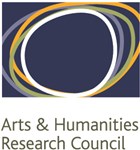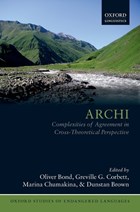From competing theories to fieldwork: The challenge of an extreme agreement system
Project Overview
Project
From competing theories to fieldwork: The challenge of an extreme agreement system
Project members:
Prof Greville G. Corbett
Prof Dunstan Brown (University of York)
Prof Bob Borsley (University of Essex)
Prof Maria Polinsky (University of Maryland)
Prof Louisa Sadler (University of Essex)
Dr Marina Chumakina
Dr Oliver Bond
Period of award
January 2012 - June 2015
Funder:
Arts and Humanities Research Council (AHRC)
Linguistics is a discipline which faces a seemingly irresolvable competition between several theories of its central component, namely syntax. Further progress requires us to clarify how the concrete predictions of each theory differ. We will create a framework for comparing and evaluating the claims of leading theories of syntax (HPSG, LFG and Minimalism). This project addresses this issue by focusing on one core area of syntax, namely agreement. Specifically, we shall use data from the Daghestanian language Archi, which has an outstandingly rich and complex agreement system, for analyses in each of the leading theories.
When accounting for agreement, contemporary syntactic theories tend to concentrate on isolated instances of complexity found in different languages. To determine the compatibility of the solutions suggested for these separate problems, we need to scale up to a full account of a complete agreement system. Archi presents a rare case of a language whose agreement system challenges major claims found in three different syntactic theories.
Our previous work on agreement gives us the theoretical apparatus necessary for describing an extreme agreement system in a consistent way. Our typological work makes us aware of the range of morphological and syntactic possibilities in agreement systems. Our earlier research on Archi, through fieldwork which led to the compiling of an innovative electronic dictionary, enables us to assess the frequencies of the different agreement strategies. This will allow us to investigate how the agreement system functions in Archi, and how its different components interact. The range of available materials, rather unique for an unwritten language with a small number of speakers, our expertise in fieldwork and the excellent working relations with the community make it possible to investigate the variation in agreement that the system allows.
The project will employ an innovative model of investigation and dissemination. It is structured around regular day-long seminars, at which a key part of the agreement system of Archi will be analysed according to the three theories, the differences will be discussed by representatives of these theories, and further fieldwork requirements will be specified. Dissemination will begin as early as the third month of the project, through a Wiki This will give the essential Archi data, and refer to the annotated corpus of Archi, published online in parallel to the Wiki. The Wiki will have three strands of responses, contributing to the three analyses of the data, in HPSG, LFG and Minimalism. These condensed materials will be of value for those interested in any one of the major theories of syntax, for those wishing to compare and contrast the three theories, and for those wanting to approach a language with extremely demanding syntax.
The main objectives of the project are to:
1. Provide an implemented framework for comparing and evaluating syntactic theories.
2. Produce an ontologically consistent description of the agreement system in Archi.
3. Give three parallel syntactic accounts of the body of challenging data.
4. Investigate the full range of function and variability of the Archi agreement system.
The obvious benefit of this research is for theory: never before have syntactic theories been compared and contrasted in such a controlled, rigorous and innovative way. In terms of our understanding of extreme agreement systems, the benefits will also be considerable, since we shall have three complementary views, together with investigation of frequency data and research into the functioning of the system, which often lie outside syntacticians' main interests. The methodological innovations should also provide a model for collaborative research on problems which are challenging both inherently and because of the theoretical diversity of the field.



